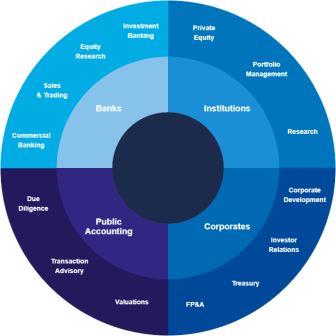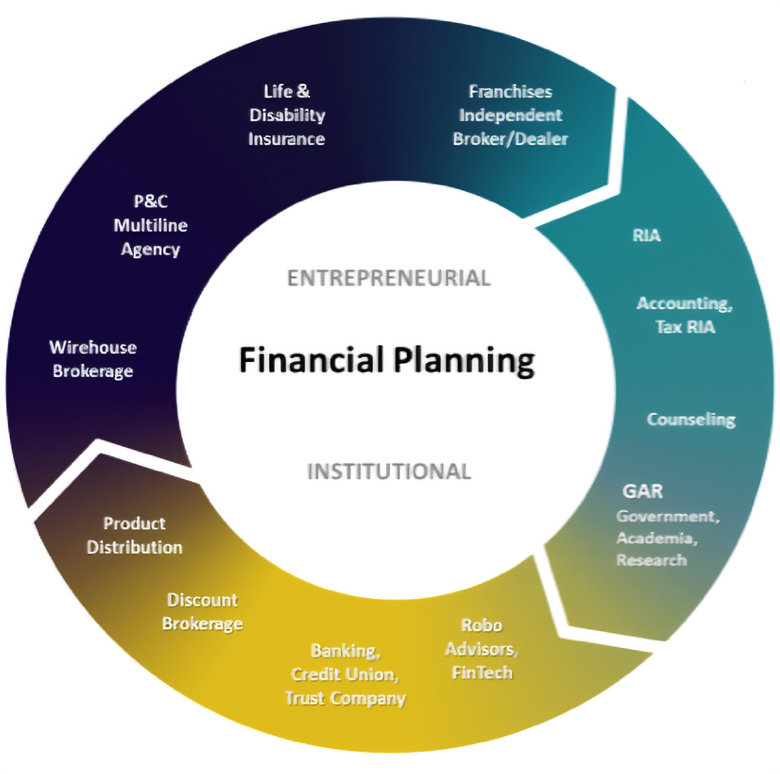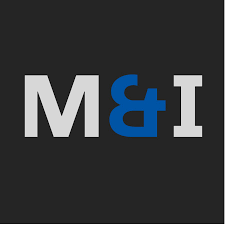
Finance & Banking
About Finance & Banking
The Financial Services industry encompasses corporate finance, investment management, government, banking, insurance, and personal financial management. Managing wealth, navigating loans, advising on investments, and assessing risk factors are all potential areas of expertise. The focus is ultimately on helping individuals and businesses make sound financial decisions. The most common finance industry designations that can be pursued after an undergraduate degree are the CFA charter and the CFP certification.
The majority of the resources on this page are dedicated to “high finance” roles in the banking industry, such as Investment Banking and Equity Research, because candidates pursuing those roles face an earlier recruitment timeline and rigorous interview process. The more common entry-level roles in finance (e.g., Financial Analyst, Credit Analyst, Financial Advisor) typically follow a traditional recruitment timeline and selection process.
What is Investment Banking?
Investment banking, or IB, as it is often called, is the term used to describe the business of raising capital for companies and governments and advising them on financing and merger alternatives. Capital essentially means money. Companies need cash in order to grow and expand their businesses; investment banks sell securities (debt and equity) to investors in order to raise this cash. These securities can come in the form of stocks, bonds, or loans. Once issued, these securities trade in the global financial markets.
Types of Investment Banks
Large Banks
Also referred to as bulge bracket banks, are firms that deal with all divisions of investment banking (IB, Sales & Trading, and Research) and have clients with revenue over a billion dollars. Examples:
- Citigroup
- Credit Suisse
- Deutsche Bank
- Goldman Sachs
- JP Morgan
- Morgan Stanley
Boutique Banks
These are firms that focus on one division in investment banking. They typically work on smaller deals with middle market companies. Examples:
- Houlihan Lokey
- Lazard
- Moelis & Company
- Piper Sandler
- Robert W. Baird
- William Blair
We recommend completing online learning, such as Training the Street, to supplement your Creighton coursework.
To learn more about the industry, recruitment process, informational and networking events, and internship/full-time opportunities from the Career Center, join the Creighton Investment Banking Society BlueLine group. Even if you are undecided or uninterested in investment banking specifically, but may have interest in other areas of finance, we encourage you to still join this group so you don’t miss out on pertinent updates from the Career Center geared towards students interested in finance.
Skills for Investment Banking
Character traits of someone suited to work as an analyst or associate include highly ambitious, competitive, analytical, and polished. Other critical skills to develop are:
- Quantitative skills (finance, accounting, economics, statistics, mathematics)
- Strong accounting and valuation knowledge
- Financial modeling skills
- Excellent Microsoft Excel and PowerPoint skills
- Effective communication
- Ability to work well in teams
- Entrepreneurial, self-starting
- Critical, detail-oriented thinking
- Leadership, with a focus on results
Recruiting Timeline
Summer Analyst internships, which typically take place during the summer before Senior year, are the primary pathway to securing full-time investment banking offers. Recruiting for these internships often begins as early as late fall of Sophomore year, with many top banks opening applications in December or January and conducting interviews shortly thereafter. Boutique and middle-market firms may have later timelines, with deadlines extending into the summer or fall of Junior year, and off-cycle opportunities may arise throughout the year. To stay competitive, we recommend students begin networking and preparing by early Sophomore year – or even spring of Freshman year, if possible.
Investment banks that target Creighton University students typically engage formally with the John P. Fahey Career Center and post positions on Handshake. However, for banks not targeting Creighton, including most large banks, students must network with industry professionals (e.g., alumni) to be referred into the recruitment pipeline. Check employer websites for application instructions.
A helpful resource to learn about internship openings around the country is the Adventis Internship Database; you can sign up for their weekly newsletter.
Meet with a Career Advisor to learn more about the recruitment process, prepare an industry-specific resume, and connect with banking professionals.
Interview Preparation
Interview processes vary by bank, but candidates should be prepared for behavioral and technical questions. According to the Corporate Finance Institute, potential sections of an interview might include:
- Bank / industry overview
- Employment history / resume
- Problem solving questions
- Technical knowledge questions
- Behavioral questions
- Questions for interviewer
Full-Time candidates may also encounter a financial modeling case in Excel.
Below is a list of free resources to help you prepare. Students who are new to this journey and interested in learning modeling basics are encouraged to take advantage of the free Wall Street Oasis Financial Statement Modeling Course. If you're preparing for recruiting and want a certification that stands out on your resume, consider paying for the Adventis Financial Modeling Certification, which is widely recognized by investment banks and private equity firms.
Free Wall Street Oasis Courses
- Interview Prep Courses (contact Heather Doering for free access)
- Financial Statement Modeling Course (contact Heather Doering for free access)
Forage Internship Simulation Courses
Forage internship simulations help students develop transferable skills for workplace readiness. Each micro-internship is 3-6 hours of industry-specific tasks and culminates in a certificate that can be added to your resume and LinkedIn profile. These are free, self-paced courses that are great for discernment and standing out from the crowd when applying in the industry.
Student Clubs
The Investment Banking Society seeks to educate members about the investment banking industry and the recruiting process.
The BlueLine Group offers more information about the industry, recruitment process, informational and networking events, and internship/full-time opportunities from the Career Center.
Professional Organizations
Career Videos
O*Net Online Resources
O*Net offers a comprehensive view of occupations across all industries in the United States. It includes important skills for the position, employment and salary information as well as future job growth projection.





